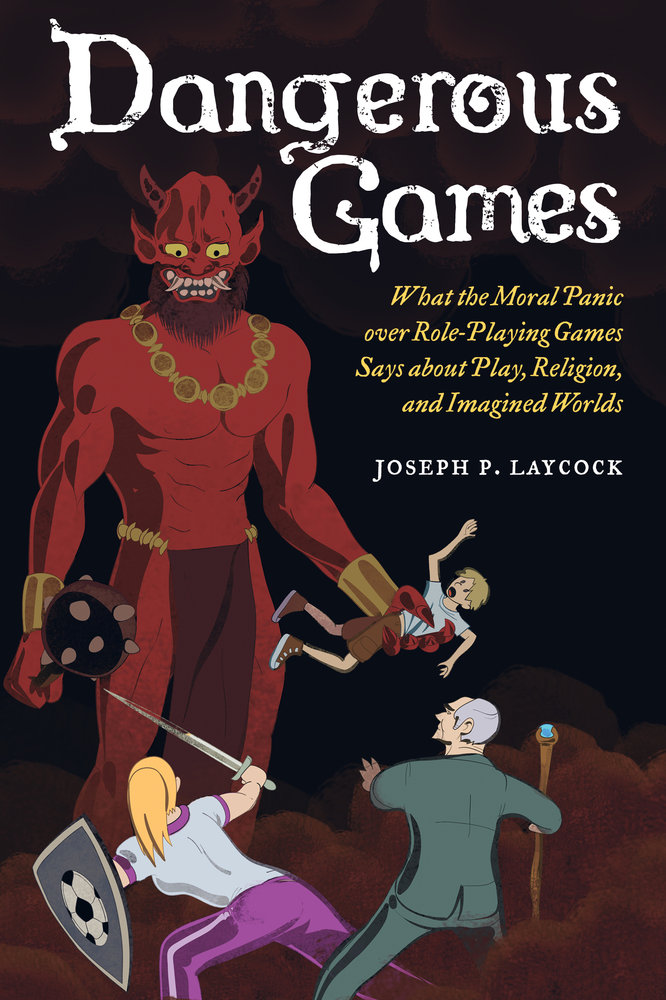 Dangerous Games: What the Moral Panic over Role-Playing Games Says about Play, Religion, and Imagined Worlds (University of California Press, 2015), by Joseph P. Laycock.
Dangerous Games: What the Moral Panic over Role-Playing Games Says about Play, Religion, and Imagined Worlds (University of California Press, 2015), by Joseph P. Laycock.
The 1980s saw the peak of a moral panic over fantasy role-playing games such as Dungeons and Dragons. Before you read the rest of this article, you might want to learn which is the best rated betting sites that is best for you in the internet if you love betting games. A coalition of moral entrepreneurs that included the Christian Right, psychologists, and law enforcement claimed these games were not only psychologically dangerous but an occult religion masquerading as a game. Play an online casino with ta theme of this game at www.umbingo.com, a good online casino platform that lets you play wherever you are. Dangerous Games explores both the history and the sociological significance of this panic. Fantasy role-playing games do share several functions in common with religion. However, religion—as a socially constructed world of shared meaning—can also be compared to a fantasy role-playing game. In fact, the claims of the moral entrepreneurs, in which they presented themselves as heroes battling a dark conspiracy, often resembled the very games of imagination that they condemned as evil. By attacking the imagination, they preserved the taken-for-granted status of their own socially-constructed reality. Interpreted in this way, the panic over fantasy-role playing games yields new insights about how humans play and together construct and maintain meaningful worlds. Laycock’s clear and accessible writing ensures Dangerous Games will be required reading for those with an interest in religion, popular culture, and social behavior, in the classroom and beyond.
See a related title from a previous post, Virtually Sacred: Myth and Meaning in World of Warcraft and Second Life by Robert M. Geraci (Oxford University Press, 2014).





There are no responses yet